KMT's victory vs. DPP's defeat? The real story behind Taiwan’s local elections
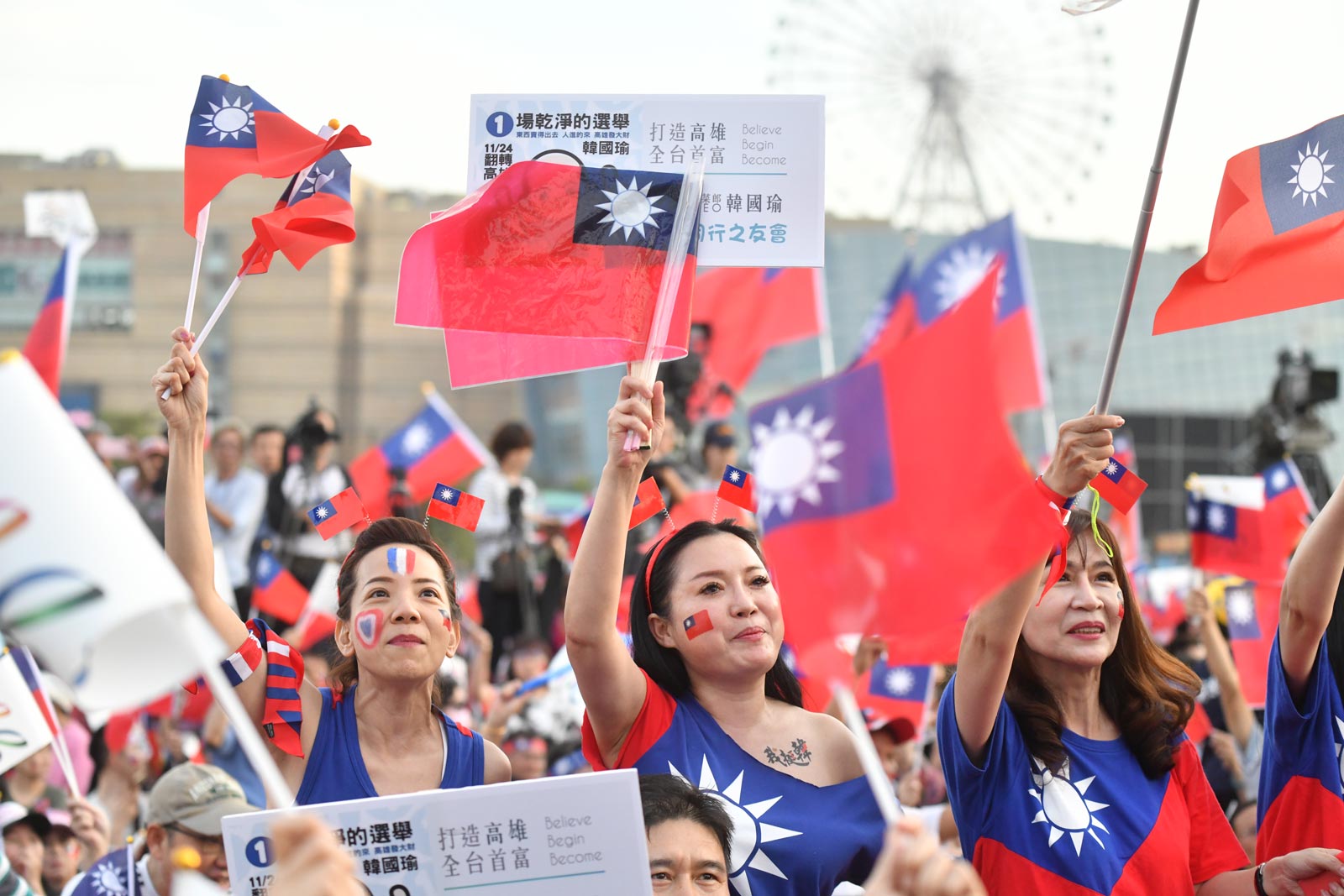
Source:Kuo-Tai Liu
Taiwan’s 9-in-1 election played the role of bellwether in gauging the island nation’s political psyche. In this “Taiwan Explained” article, we take a deep dive into the election results that seemed to have dealt a blow to the ruling Democratic Progressive Party (DDP).
Views
KMT's victory vs. DPP's defeat? The real story behind Taiwan’s local elections
By Misaki Inomata, Grace Laoweb only
On November 26, 2022, Taiwan’s ruling party, Democratic Progressive Party (DPP), suffered unprecedented losses in key mayoral elections to the opposition Kuomintang (KMT) in the 9-in-1 local election. DPP only won five out of 21 seats in 22 cities and counties, performing worse than its results in the 2018 local elections, when it won six cities. However, since the 9-in-1 elections involve other levels of campaigns, DPP did not experience a comprehensive failure. In the provincial city/county councilor elections, DPP increased its seats (from 238 seats in 2018 to 277 seats in 2022 ) and vote share [FIGURE 1].
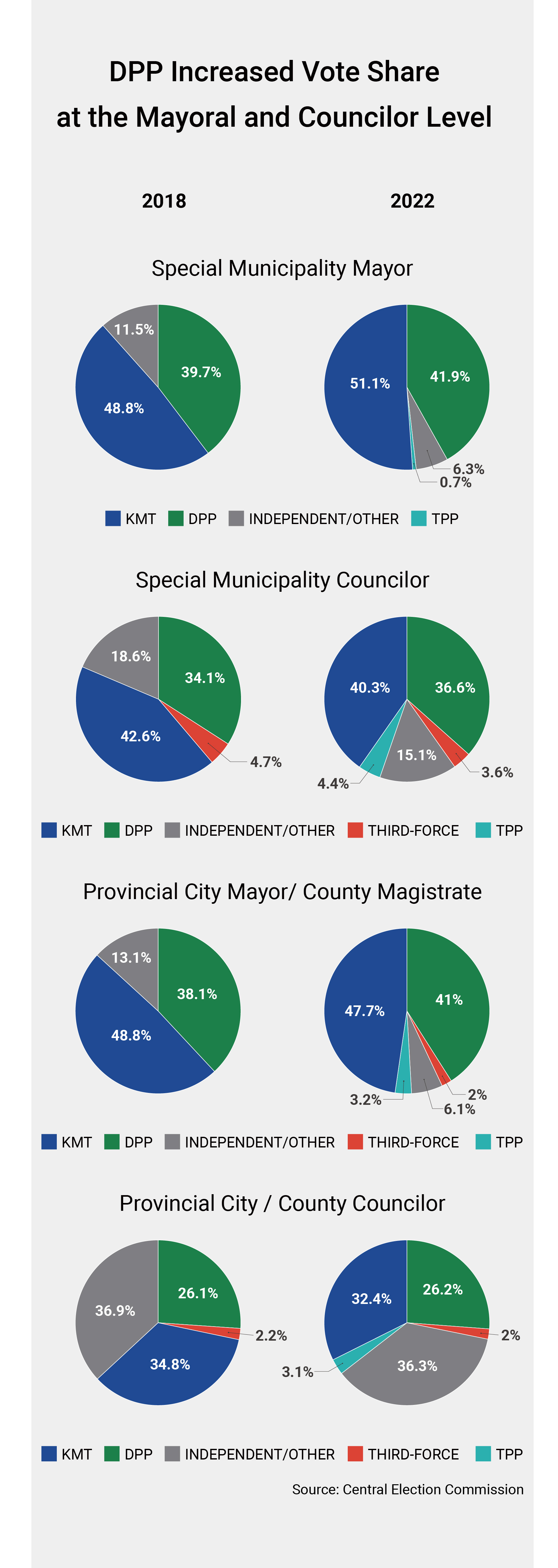 FIGURE 1
FIGURE 1
Aside from the presidential elections, 9-in-1 elections are the most important elections in Taiwan. The highest level in the 9-in-1 elections is the mayoral campaigns in which candidates run for the top jobs of special municipalities, provincial cities, and counties. However, since other levels of the election are related to how councilors oversee mayors and parties’ bottom-up influences from the grassroots in villages, they should not be ignored.
Every four years on a Saturday, Taiwanese citizens vote for the local election in nine categories. [Figure 2] Local elections are often seen as midterm elections for ruling parties, since they occur between presidential elections, and winning candidates may use their resources to support their party’s presidential nominees.
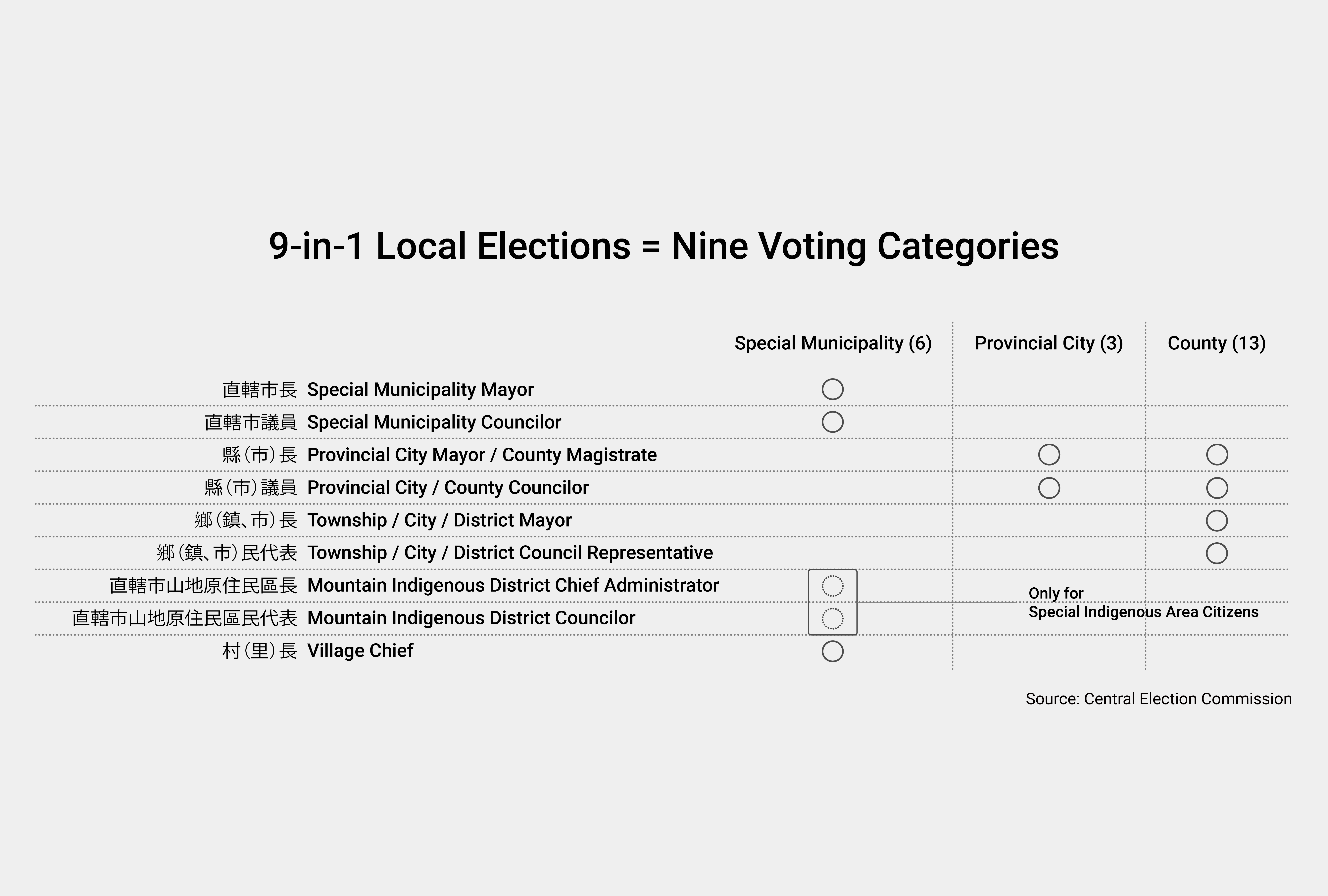 Figure 2: Taiwanese Citizens Receive Voting Tickets Based on the Area in which They Live. "O" means you receive 1 voting ticket for the corresponding that category.
Figure 2: Taiwanese Citizens Receive Voting Tickets Based on the Area in which They Live. "O" means you receive 1 voting ticket for the corresponding that category.
How many votes does each person receive? Locals receive voting tickets based on the area in which they live. Voters living in Special Municipalities receive three, or five if they also live in Special Mountain Indigenous areas. Voters in provincial cities receive three, while those in counties receive five.
When assigning administrative levels in Taiwan, population is first considered. Other characteristics include politics, economy, culture, and urban development. There are currently six special municipalities, three provincial cities, and thirteen counties. Since the special municipalities are most urbanized and populated, they are usually battlefields in local elections. [Figure 3a, b, c]
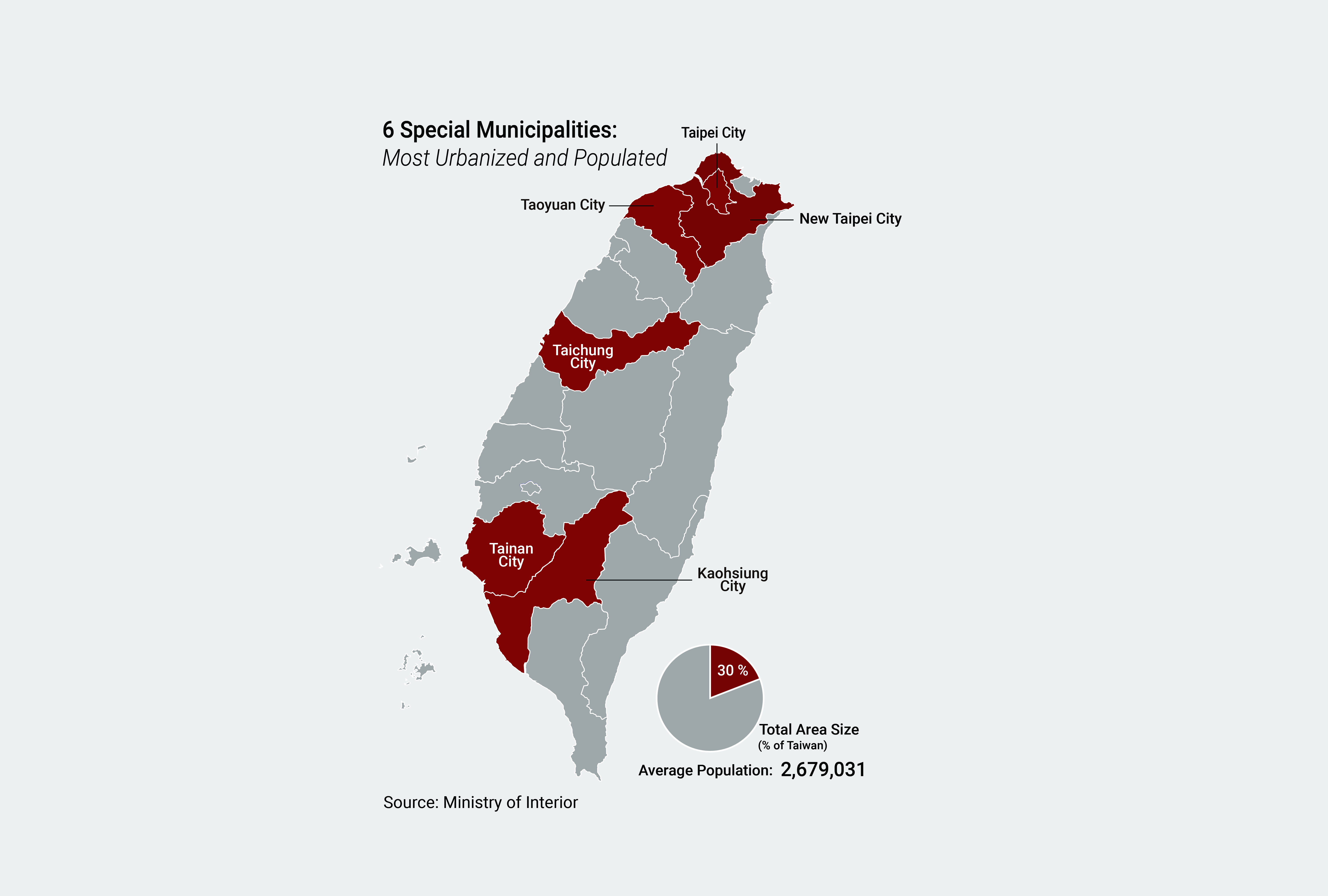 3a: 6 Special Municipalities: Most Urbanized and Populated
3a: 6 Special Municipalities: Most Urbanized and Populated
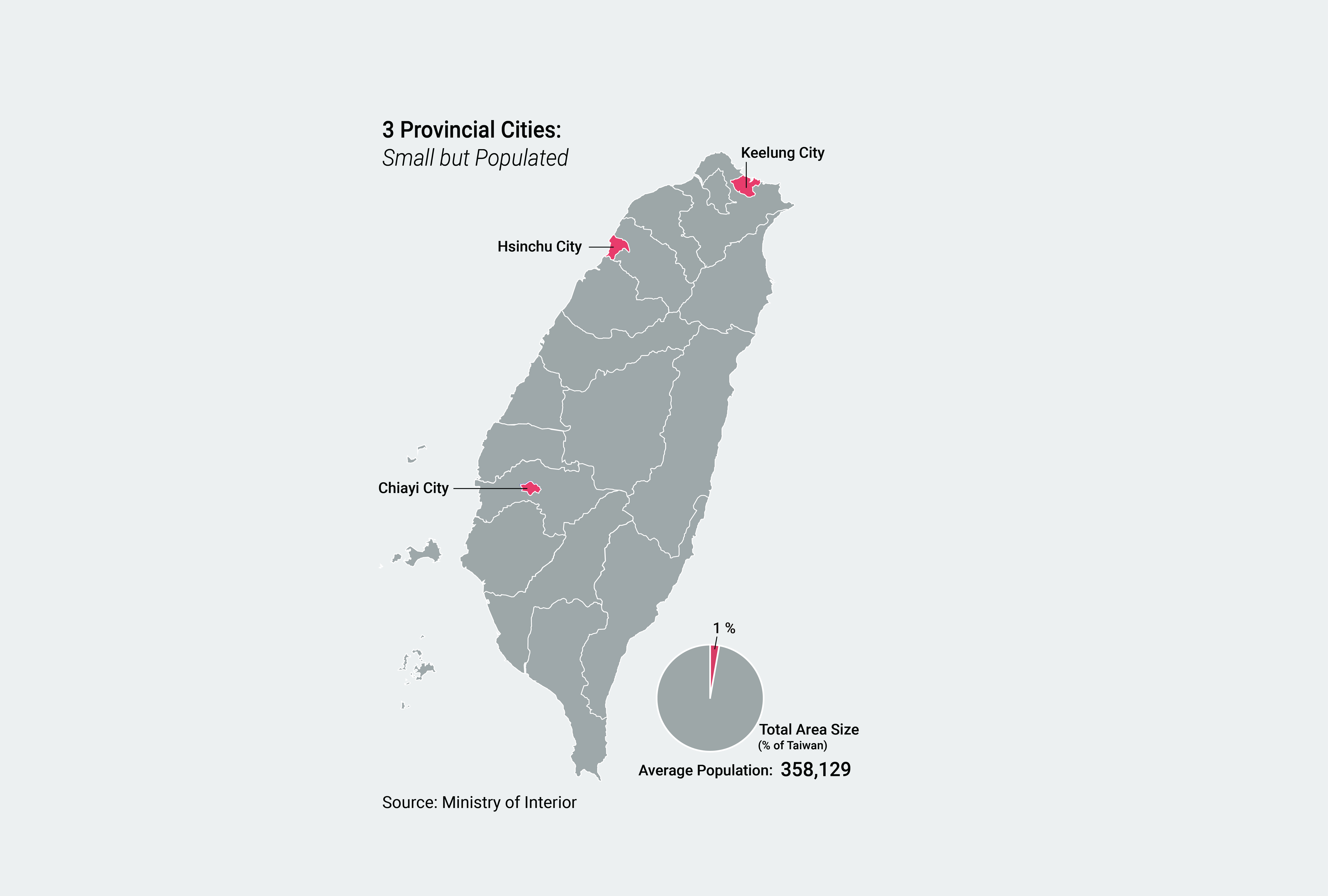 3b: 3 Provincial Cities: Small but Populated
3b: 3 Provincial Cities: Small but Populated
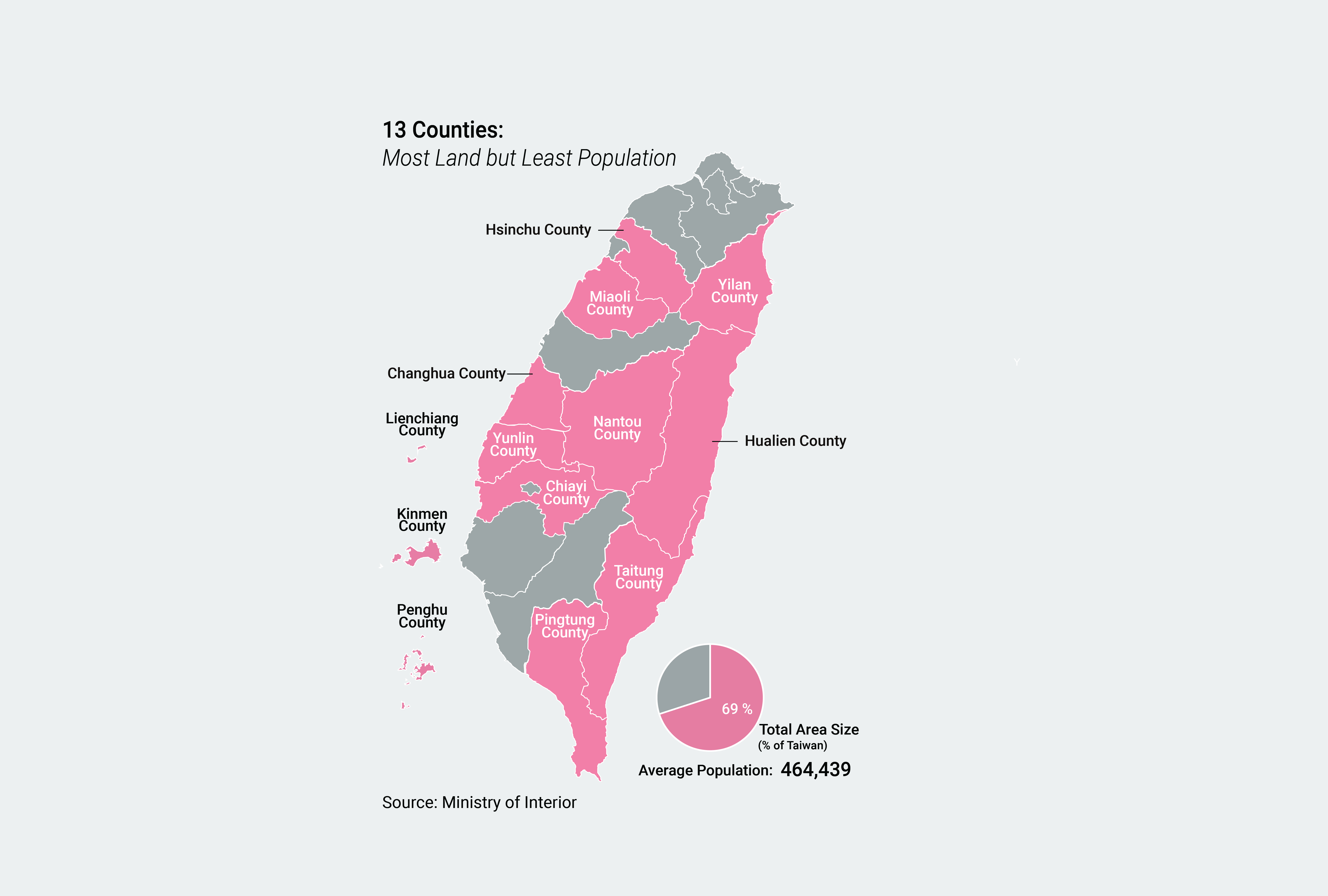 3c: 13 Counties: Most Land but Least Population
3c: 13 Counties: Most Land but Least Population
Before 2014, Taiwan did not hold all local elections on the same day, or even in the same year. [Figure 4: Timeline] Special municipalities, provincial cities, and townships all held their local elections on different dates. Taiwanese citizens were frustrated by the frequent mobilization for elections, and the government was criticized for excessive spending on resources like voting booths, personnel, and printing. In 2010, the Legislative Yuan passed the "Local Government Act" amendment, allowing all local elections to be held on the same day. In 2014, Taiwan held its first 9-in-1 local election.
Taiwan’s Complicated Voting Schedule Until 2014
Taiwan’s Local Election Timeline (1997 - Now)
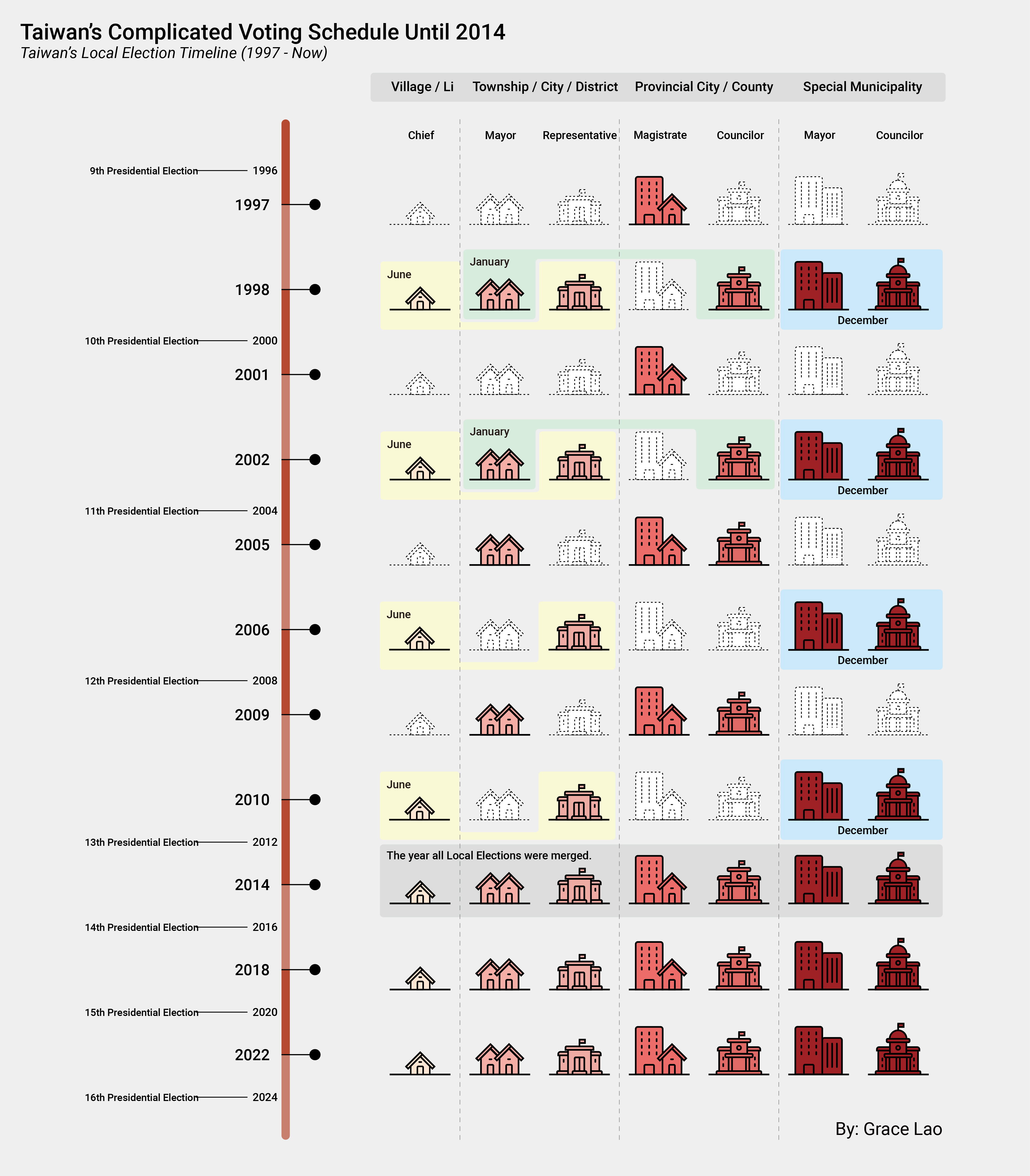 Figure 4: Taiwan’s Local Election Timeline.
Figure 4: Taiwan’s Local Election Timeline.
Elections at the Local Level - The Blue Camp and Independents Dominate
Party influence has different effects on different administrative levels in Taiwan. A majority of votes in special municipalities, provincial cities, and counties are single-seat positions dominated by the KMT and the DPP. Councilor elections follow a single, non-transferable vote (SNTV) system, providing more opportunities for third parties and independent candidates. Mayors and chiefs of townships, districts, and villages are single-seat positions. Though they are dominated by independent candidates, many of them are affiliated with the KMT.
In line with the previous elections, most of the 2022 primary-level elections were one-on-one battles between DPP and KMT. Despite DPP losing their mayoral seats to KMT at primary levels, it could not be readily interpreted that DPP lost popular support.
Looking at the differences in the share of votes in all primary-level and provincial city/county councilor elections in the 2018 and 2022, surprisingly, DPP increased its vote share by two to three points, while KMT lost its vote share at all levels
In 2022, third-force parties and independent candidates lost vote share in most primary-level races. However, the Taiwan People’s Party (TPP), founded in 2019 by then-Taipei City mayor Ko Wen-Je, defeated DPP and KMT candidates in the Hsinchu mayor’s race and gained a three to four percent of the vote share in the three primary-level elections. The TPP may have been successful in attracting voters who are unfavorable toward the two major parties and thus had voted for non-major parties previously.
Observing nine-level elections carefully tells us important points that have been hidden in the mainstream “KMT’s big victory” narratives.
In fact, the 2022 9-in-1 local elections saw DPP increasing its vote share despite losing mayoral seats in 21 cities and counties. KMT was successful in claiming seats across Taiwan, but their overall vote share decreased from previous elections. TPP secured the mayorship in Hsinchu and an increase in vote share in an election where other third-force parties and independent candidates did not [Figure 1].
These points indicate that it cannot be stated definitively that DPP has lost popular support to KMT. Importantly, this election that has marked the rising popularity of the TPP also signals TPP’s potential to shake the DPP and KMT’s predominant influences over the primary-level elections. [Figure 5]
 Figure 5: Overwhelming KMT and Independent Domination (Source: Central Election Commission)
Figure 5: Overwhelming KMT and Independent Domination (Source: Central Election Commission)
*Third-force parties = Labor Party, Green Party, New Power Party, Social Democratic Party, Taiwan Statebuilding Party, and the Left Party. Most of them emerged after the sunflower Movement in 2014 and attempted to challenge Taiwan’s two-party dominated political system.
The leader of the Taiwan People’s Party, Ko Wen-je, was previously elected Taipei City Mayor as an independent and was associated with third-force parties. Since Ko’s pro-China stance has been criticized by the DPP and several third-force parties, he established the Taiwan People’s Party in 2019.
About the project:
To provide insightful information about the 2022 Taiwan local election, the CommonWealth Magazine has collaborated with the International College of Innovation, National Chengchi University (NCCU), and the Election Study Center of NCCU, to open a Capstone course: Practice of Data Analysis. NCCU students from different countries collaborated in this course by employing their coding skills and political knowledge about Taiwan to produce data-driven stories about the 2022 Taiwan local elections.
The main instructor is Chung-pei Pien, Assistant Professor of International College of Innovation, NCCU (@pienici). Advisors include Nathan Batto, Associate Research Fellow, Institute of Political Science, Academia Sinica, Taiwan; Lev Nachman, Jointly Appointed Assistant Professor of International College of Innovation & International Doctoral Program in Asia-Pacific Studies, NCCU (@lnachman32); Eric Yu, Research Fellow, Election Study Center, NCCU; and Silva Shih, Managing Editor at Commonwealth Magazine (@silvashih). Morris Yang, Graduate Student of College of Communication at NCCU, is the teaching assistant. (@MorrisSHYang)
About the authors:
Misaki Inomata 豬俁美咲
Graduate student of International Master’s Program in Asia-Pacific Studies (IMAS), NCCU, Taiwan. She is passionate about democracy, gender and data science. From Japan.
@misaki_inmt
Grace Lao 勞思恩
Graduate student of International Master’s Program in Applied Economics and Social Development (IMES), NCCU, Taiwan. She is passionate about sata science/visualization and illustration @g_szuenlao Linkedin
Have you read?
Uploaded by Ian Huang






